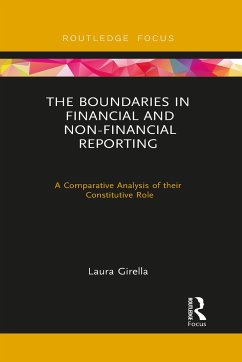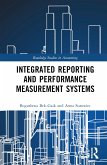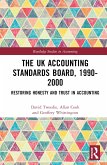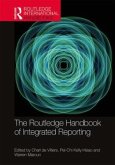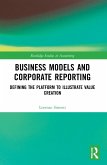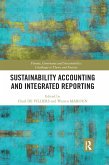Although the need to expand the boundaries of financial reporting has been discussed since the mid-1990s, little consideration has been given to the evolution and discourses of integrated reporting of non-financial aspects. Yet by investigating how and why an organisation defines and its reporting boundaries, it is possible to understand what is truly "valued" (or not) in its business model.
This innovative book reviews the guidelines and frameworks from the major relevant international organisations including: the International Accounting Standards Board, Global Reporting Initiative, Sustainability Accounting Standards Board, International Integrated Reporting Council, Carbon Disclosure Standards Board, and the World Intellectual Capital Initiative, and analyses their development and impact on the boundaries of financial and non-financial reporting.
Illustrated with case studies and interviews with representatives of these organisations, this concise volume makes a significant contribution to the future of reporting theory and practice. It will be of great interest to advanced students, researchers, practitioners and policy makers.
This innovative book reviews the guidelines and frameworks from the major relevant international organisations including: the International Accounting Standards Board, Global Reporting Initiative, Sustainability Accounting Standards Board, International Integrated Reporting Council, Carbon Disclosure Standards Board, and the World Intellectual Capital Initiative, and analyses their development and impact on the boundaries of financial and non-financial reporting.
Illustrated with case studies and interviews with representatives of these organisations, this concise volume makes a significant contribution to the future of reporting theory and practice. It will be of great interest to advanced students, researchers, practitioners and policy makers.
The boundaries that are set in all forms of corporate reporting not only demark the scope of information provided but represent the conjunction of accounting, economic concepts. Boundaries in reporting are concomitant with the boundaries of professional accountant, statutory auditors and assurance providers. As part of the neo-liberal narrative the boundary signifies the limits of the entity's responsibilities and the externalities left for governments and societies to deal with. In this insightful and though-provoking study, Dr Girella challenges the boundaries we imagine to exist in reporting and demonstrates that they are increasingly being redrawn and becoming more permeable.
Mario Abela, Director, World Business Council for Sustainable Development
Mario Abela, Director, World Business Council for Sustainable Development

